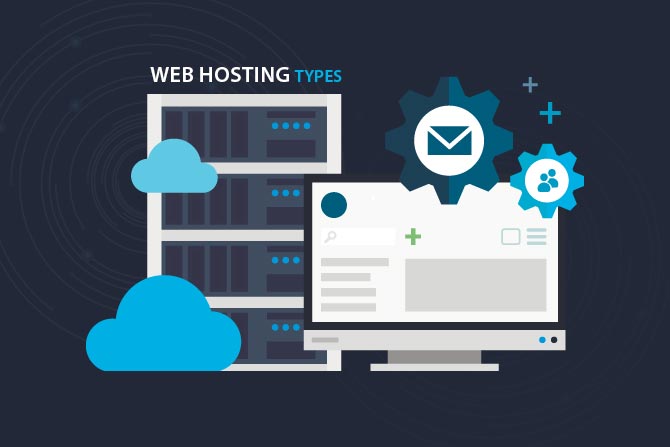Web hosting providersdividetheir services into different categories so that they can serve customers with different needs and budget.
Shared Hosting
It means that the server (and the resources of the server: disk, traffic, processing power, RAM) that hosts your website is shared, i.e. hosts other websites as well.
Companies that offer shared hosting packages undertake to cover any problem related to the server.
The advantage of this solution is the low price, the ease of management and the fact that the customer does not have to have knowledge of managing a server.
If a site starts consuming a lot of resources, then it should be transferred to VPS or Dedicated server, so as not to create a problem on the other sites and to be able to operate properly and quickly.
Virtual Private Server
Each Virtual Private Server (VPS) is an isolated part of a physical server and functions as an independent server with its own resources (CPU, RAM, Disk Space, traffic) and control panels (Virtuozzo,CPanel,Plesk Server Admin).
Resellers, webmasters and developers can have complete control over their hosting environment and running applications (via Plesk and SSH) and can configure their VPS according to their needs (e.g. special version PHP, MySQL etc).
The advantage is that they have more resources than in simple web hosting, the owner should not have advanced knowledge of programming and server management and the cost is lower than a small dedicated server.
Dedicated Servers
This is a rental of an entire server to which only the client who rents the server will have access.
Dedicated servers are usually intended for websites that consume a lot of system resources (data traffic, disk space, RAM/CPU) and are difficult to host in a simple shared package or VPS hosting.
Dedicated servers are divided into 2 categories:
a) Managed Dedicated Servers
Those who believe that they cannot manage a dedicated server on their own must choose a service/company that offers Managed Servers, such as 1GBits.
Thus, the technical problems, upgrades and security of the server are taken over by the company that provides the server.
b) Self-Managed Dedicated Servers (or Unmanaged Servers)
The server owner must have experience and knowledge in server management in order to be able to solve all the problems that will arise.
The company supports only the operating system, the control panel, the hardware, the network of connections of the server and nothing else.








